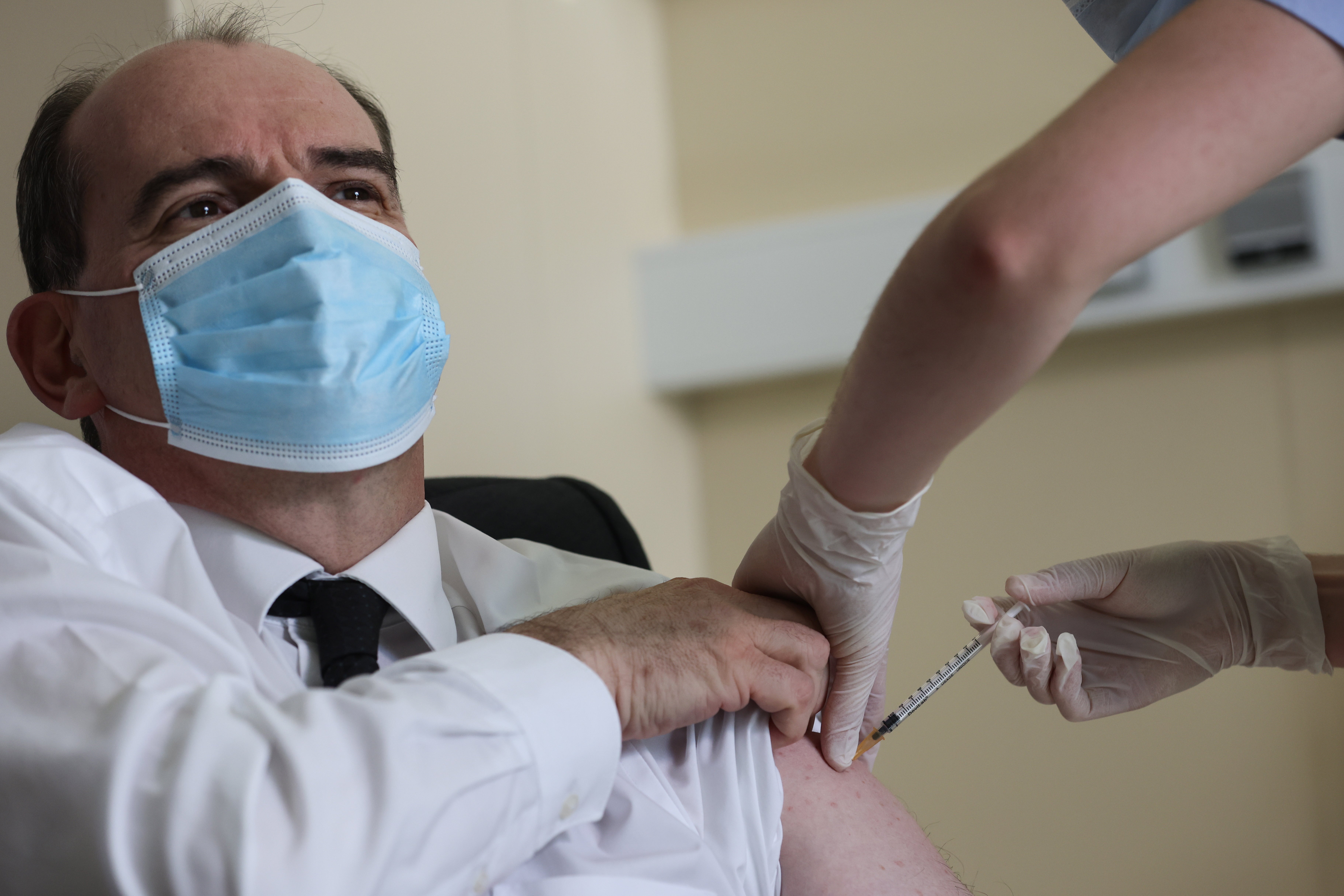France restart using AstraZeneca vaccines but only for over 55s
Germany also resumes using vaccine and says it may buy jabs from Russia

France and almost a dozen other countries have resumed their rollout of AstraZeneca’s coronavirus vaccine, after temporarily suspending it following reports of it causing blood clots.
The move comes after the European Medicines Agency (EMA) confirmed on Thursday that the jab was “safe and effective”.
While insisting that its benefits far exceeded its risk, the EU’s medical regulator added that it could not “definitively” rule out a link between rare blood clots and the Anglo-Swedish company’s vaccine.
As a result, the National Authority for Health (NAH), the French regulator, has decided to only administer AstraZeneca doses to the over-55s.
The NAH explained that it had taken this step because “the EMA has identified a possible increased risk of (thrombosis) in people under 55 years old”.
Those under 55 who have already received their first dose will be given advice soon, the NAH added.
Read more:
The over-55 policy marks a reversal from the country’s stance in February when it said the vaccine would only be given to the under-65s, with president Emmanuel Macron claiming incorrectly it was “quasi-ineffective” for people over that age.
After calling its efficacy and safety into question, Paris is now keen to restore public confidence in the jab. As such, French prime minister Jean Castex, 55, received his AstraZeneca shot live on national television on Friday.
After a three-day hiatus, Germany also reintroduced the vaccine following the EMA’s announcement on Thursday.
The German health minister Jens Spahn defended its brief suspension, saying: “We can reintroduce AstraZeneca but prudently with informed doctors and appropriately educated citizens.”
Berlin is growing increasingly impatient to secure more vaccines, as it will receive several million fewer AstraZeneca doses than expected in the second quarter of this year because of manufacturing issues.
So far, it has only immunised 8.5 per cent of its population, well behind countries like the UK.
In a bid to speed up the process, Mr Spahn suggested that Berlin could bypass the EU and sign a deal with Russia for its Sputnik V coronavirus vaccine, provided more information was given about how many doses could be supplied.
“I am actually very much in favour of us doing it nationally if the European Union does not do something,” he told reporters.
The vaccine chaos in Europe comes amid rising coronavirus cases on the continent and mounting concerns that the bloc does not have enough vaccines to contain a third wave of infections.
France has already decided to introduce a month-long lockdown in Paris and other northern parts of the country to restrict the spread of the virus, while Germany has not ruled out toughening restrictions.
Additional reporting by Reuters
Join our commenting forum
Join thought-provoking conversations, follow other Independent readers and see their replies
Comments
Bookmark popover
Removed from bookmarks